

The Harry Potter Books: Analyzing The Hero’s Journey Narrative
Get ready to dive into the magical world of the Harry Potter books! In this article, we will take a closer look at the captivating narrative structure of the series and analyze how it follows the Hero’s Journey. From the moment Harry receives his acceptance letter to Hogwarts School of Witchcraft and Wizardry, to his epic battles against the dark forces of Voldemort, each book takes readers on an exhilarating adventure filled with twists, turns, and a whole lot of magic. So, grab your broomstick and join me as we unravel the secrets behind the hero’s journey in the enchanting world of Harry Potter.
When it comes to storytelling, J.K. Rowling has masterfully crafted a narrative that captivates readers of all ages. The Hero’s Journey, a concept popularized by Joseph Campbell, is a common narrative structure found in many epic tales throughout history. It follows the path of a hero as they embark on a transformative quest, facing challenges, discovering their true potential, and ultimately emerging victorious. In the Harry Potter books, this narrative structure is skillfully woven into the fabric of the story, creating a gripping and immersive reading experience. So, let’s grab our wands and delve into the magical realm of Harry Potter to uncover the intricacies of the hero’s journey narrative.
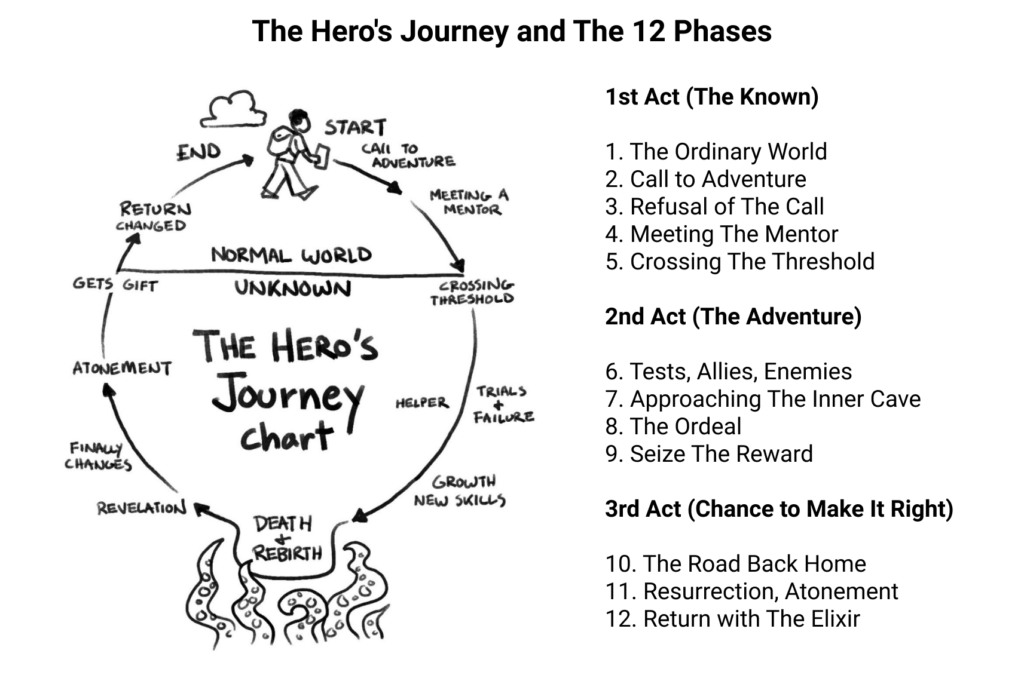
Table of Contents
The Harry Potter Books: Analyzing the Hero’s Journey Narrative
The Harry Potter series, written by J.K. Rowling, has captivated readers of all ages with its magical world and compelling characters. One of the reasons for its immense popularity is the hero’s journey narrative that underlies the story. In this article, we will delve into the hero’s journey narrative in the Harry Potter books and analyze its impact on the overall storytelling.
The Call to Adventure: Harry’s Introduction to the Wizarding World
The hero’s journey begins with the call to adventure, where the protagonist is introduced to a world beyond their ordinary existence. In the case of Harry Potter, this occurs when he receives his acceptance letter to Hogwarts School of Witchcraft and Wizardry. This pivotal moment sets Harry on a path that will forever change his life.
From the moment Harry steps onto Platform Nine and Three-Quarters, he enters a world filled with magic, wonder, and danger. He is thrust into a society that he never knew existed, where he learns about his true heritage and the powers he possesses. This introduction to the wizarding world serves as the catalyst for his extraordinary journey.
The Mentor: Dumbledore’s Guidance and Wisdom
Every hero needs a mentor to guide them through their journey, and Harry finds this mentor in Albus Dumbledore, the wise and enigmatic headmaster of Hogwarts. Dumbledore plays a crucial role in Harry’s development, providing him with guidance, support, and valuable life lessons.
As Harry navigates the challenges and obstacles that come his way, Dumbledore is always there to offer advice and encouragement. He helps Harry understand the significance of his role as the Chosen One and teaches him the importance of love, friendship, and sacrifice. Dumbledore’s presence in Harry’s life is instrumental in shaping him into the hero he becomes.
The Trials and Tribulations: Overcoming Challenges
No hero’s journey is complete without trials and tribulations that test the protagonist’s strength and resolve. In the Harry Potter books, Harry faces numerous challenges, both physical and emotional, that push him to his limits.
From battling deadly creatures to facing off against the dark wizard Lord Voldemort, Harry must confront his deepest fears and find the courage to overcome them. These trials not only shape his character but also highlight the themes of bravery, resilience, and the power of good triumphing over evil.
The Ultimate Sacrifice: Harry’s Selflessness
In the final stages of the hero’s journey, the protagonist is often called upon to make a great sacrifice for the greater good. Harry exemplifies this selflessness when he willingly gives his life to protect his friends and defeat Voldemort.
This ultimate sacrifice showcases Harry’s unwavering loyalty and love for those he cares about. It also demonstrates the transformative power of selflessness and the importance of making choices that prioritize the well-being of others. Harry’s willingness to lay down his life for the greater good is a defining moment in his hero’s journey.
The Return: Harry’s Newfound Wisdom and Growth
After completing the hero’s journey, the protagonist returns to their ordinary life but forever changed by their experiences. For Harry, this return occurs after the Battle of Hogwarts, where he emerges victorious and brings an end to Voldemort’s reign of terror.
Despite the immense loss and grief he experiences, Harry emerges from his journey with newfound wisdom and maturity. He learns the value of love, friendship, and the power of unity. The hero’s journey has not only transformed Harry but also the entire wizarding world.
In conclusion, the Harry Potter books beautifully weave the hero’s journey narrative throughout the story, taking readers on a captivating adventure filled with magic, friendship, and self-discovery. From Harry’s call to adventure to his ultimate sacrifice, each stage of the hero’s journey contributes to the rich and compelling storytelling that has made the series a beloved classic. The Harry Potter books remind us of the power of resilience, love, and the ability to overcome even the darkest of challenges.
Key Takeaways: The Harry Potter Books – Analyzing the Hero’s Journey Narrative
- Harry Potter’s journey follows the classic hero’s journey narrative structure.
- He starts as an ordinary boy, but discovers he is a wizard and enters the magical world.
- Harry faces challenges, overcomes obstacles, and grows stronger throughout the series.
- He is guided by mentors like Dumbledore and faces a powerful antagonist, Lord Voldemort.
- The Harry Potter books teach us about friendship, bravery, and the power of love.
Frequently Asked Questions
1. how does the hero’s journey narrative structure apply to the harry potter books.
The hero’s journey is a narrative structure that follows the journey of a hero as they face challenges, grow, and ultimately transform. The Harry Potter books, written by J.K. Rowling, beautifully embody this narrative structure. Harry Potter, the protagonist, begins as a young orphan living with his neglectful relatives. As he discovers his magical abilities and enters the wizarding world, he is called to embark on a journey to defeat the dark wizard, Lord Voldemort.
Throughout the series, Harry faces various trials and tribulations, encountering allies, enemies, and mentors along the way. He undergoes personal growth, learns valuable lessons, and ultimately fulfills his destiny as the chosen one. The hero’s journey structure can be seen in the challenges Harry faces, the stages of his development, and the ultimate triumph of good over evil.
2. What are some key stages of the hero’s journey narrative in the Harry Potter books?
The hero’s journey narrative in the Harry Potter books can be divided into several key stages. The first stage is the “Call to Adventure,” where Harry receives his invitation to attend Hogwarts School of Witchcraft and Wizardry. This sets him on the path of his magical journey. The next stage is the “Threshold Crossing,” where Harry enters the wizarding world and leaves behind his ordinary life.
As the series progresses, Harry goes through stages such as “Tests, Allies, and Enemies,” where he faces various challenges, forms alliances, and encounters enemies. He also experiences the “Ordeal,” a moment of intense conflict or crisis that tests his strength and resolve. Finally, there is the “Return and Transformation,” where Harry returns to Hogwarts to face the ultimate battle against Voldemort and undergoes a transformation that solidifies his role as the hero.
3. How does the hero’s journey narrative impact character development in the Harry Potter books?
The hero’s journey narrative structure greatly impacts character development in the Harry Potter books. As the characters go through the various stages of the hero’s journey, they undergo personal growth, face their fears, and learn important life lessons.
For example, Harry Potter starts off as a timid and unsure young boy, but through his journey, he gains confidence, learns to trust his instincts, and discovers his true identity as the chosen one. Other characters, such as Hermione Granger and Ron Weasley, also experience their own growth and transformation as they face challenges and contribute to Harry’s journey.
4. How does the hero’s journey narrative create suspense and tension in the Harry Potter books?
The hero’s journey narrative in the Harry Potter books creates suspense and tension by presenting the protagonist, Harry Potter, with formidable challenges and obstacles. Each stage of the hero’s journey brings new dangers and uncertainties, keeping readers on the edge of their seats.
As Harry faces tests, encounters enemies, and confronts his fears, the stakes are raised, and the tension builds. The reader becomes invested in Harry’s journey and eagerly follows along to see how he will overcome each obstacle and progress towards his ultimate goal of defeating Voldemort.
5. How does the hero’s journey narrative in the Harry Potter books resonate with readers?
The hero’s journey narrative in the Harry Potter books resonates with readers because it taps into universal themes and emotions. The journey of the hero, with its ups and downs, triumphs and setbacks, mirrors the challenges and growth that individuals experience in their own lives.
Readers can relate to the struggles and successes of Harry Potter and the other characters, finding inspiration in their resilience, bravery, and determination. The hero’s journey narrative provides a framework for understanding personal growth and transformation, making it a compelling and relatable story for readers of all ages.
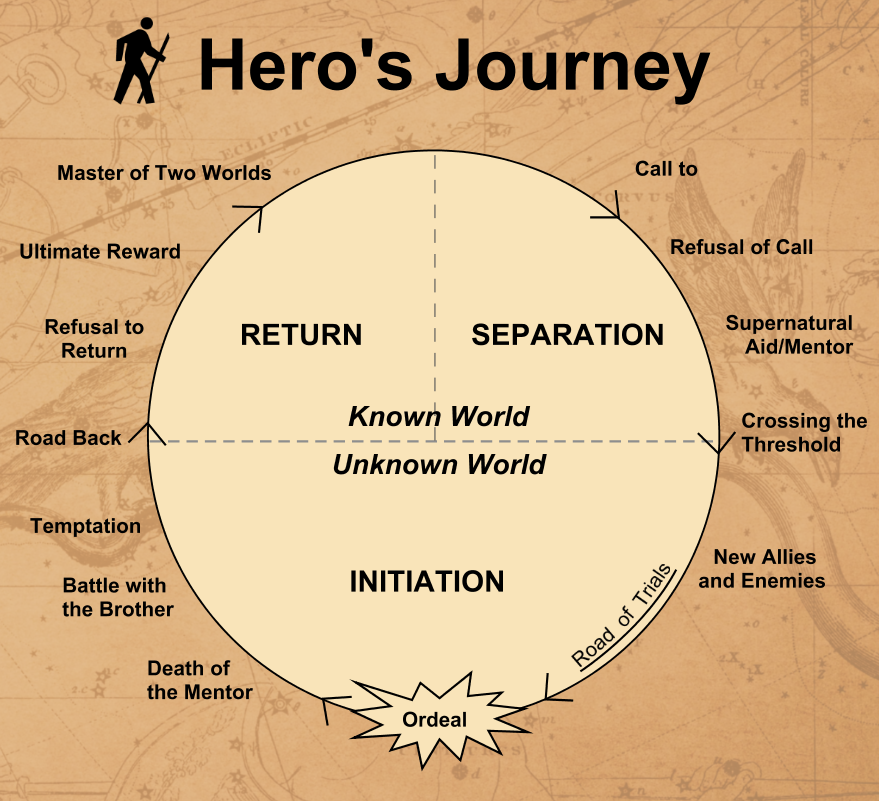
The Life of Harry Potter: The Hero’s Journey Explained (Video Essay / Theory Video)
Final Summary: Unleashing the Magic of the Hero’s Journey
As we delve into the enchanting world of Harry Potter, it becomes clear that J.K. Rowling’s masterful storytelling follows the timeless structure of the hero’s journey. From the humble beginnings of a young wizard at Privet Drive to the epic battles fought at Hogwarts, Harry’s path mirrors that of countless legendary heroes throughout literature. By analyzing the hero’s journey narrative in the Harry Potter books, we gain a deeper understanding of the universal themes and archetypes that captivate readers of all ages.
Throughout the series, Harry embarks on a transformative adventure, facing trials, meeting allies, and ultimately confronting the forces of darkness. Just like the hero’s journey framework suggests, Harry’s journey follows a cyclical pattern of departure, initiation, and return. From the moment he receives his acceptance letter to Hogwarts, to his encounters with mentors like Dumbledore and his final confrontation with Voldemort, each step of his journey shapes him into the true hero he was destined to become.
What makes the hero’s journey narrative in the Harry Potter books so compelling is its ability to resonate with readers on a profound level. We see ourselves in Harry’s struggles, his triumphs, and his growth. Rowling’s meticulous attention to detail and her ability to craft relatable characters breathe life into the hero’s journey, making it a timeless tale that continues to capture the hearts and imaginations of readers around the world.
So, grab your wand, don your robes, and immerse yourself once again in the magical world of Harry Potter. As you journey alongside the Boy Who Lived, you’ll discover that the hero’s journey is not just a narrative structure, but a reflection of the human experience itself. Through the power of storytelling, Rowling has bestowed upon us a gift that will continue to inspire and transport us to a realm where magic and heroism reign supreme.
Similar Posts
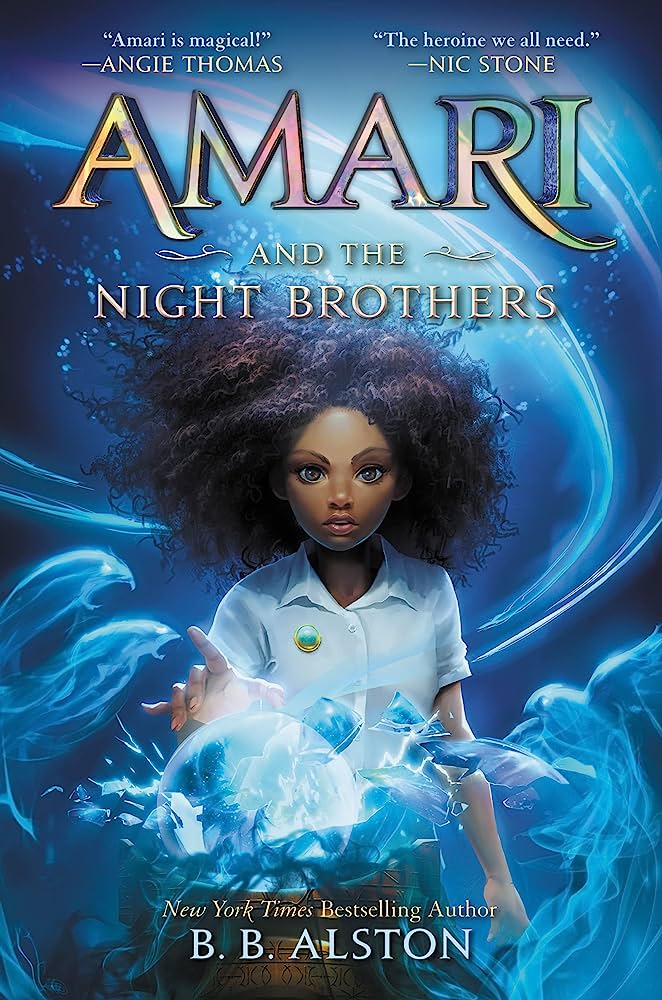
Can I Read The Harry Potter Books On My Blackberry Device?
Ah, the magical world of Harry Potter! It has captivated the hearts of millions, transporting us to a realm of wizards, spells, and enchanting adventures. But here’s a burning question…
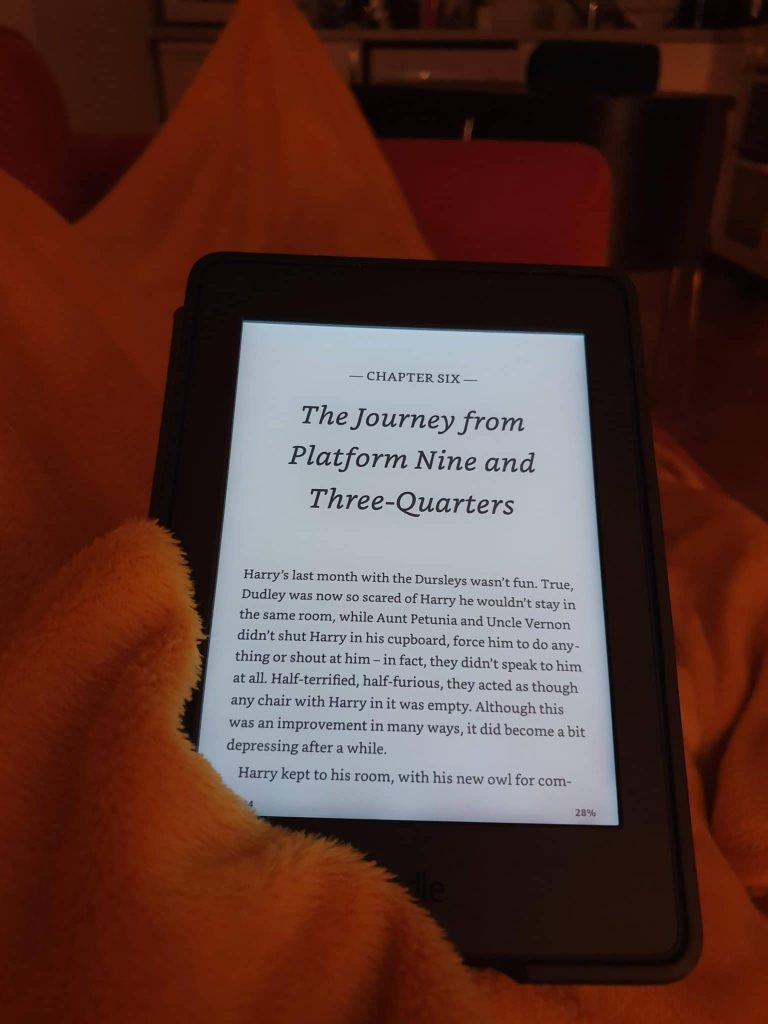
Can I Read The Harry Potter Books On My Tablet With The Moon+ Reader Pro App?
If you’re a fan of the magical world of Harry Potter and you’re wondering if you can read the books on your tablet using the Moon+ Reader Pro app, then…
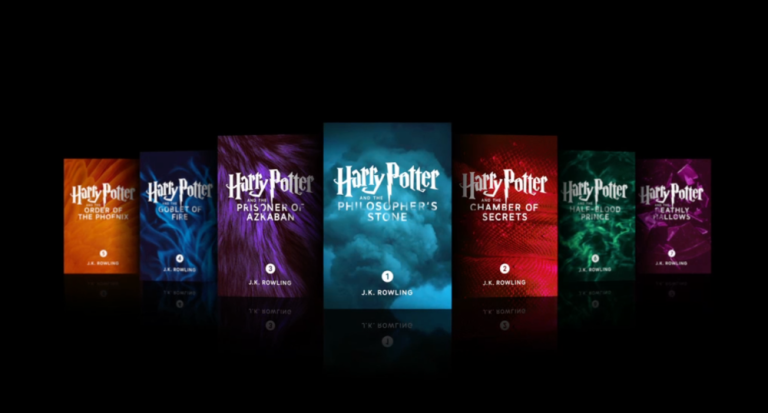
Can I Read The Harry Potter Books On A Mac App?
If you’re a fan of the magical world of Harry Potter and have a Mac, you might be wondering, “Can I read the Harry Potter books on a Mac app?”…
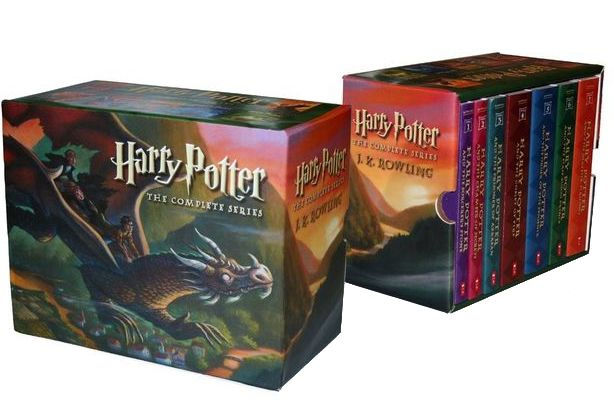
Can I Buy A Box Set Of The Harry Potter Books?
If you’re a fan of the magical world of Harry Potter, you might be wondering, “Can I buy a box set of the Harry Potter books?” Well, my friend, you’re…
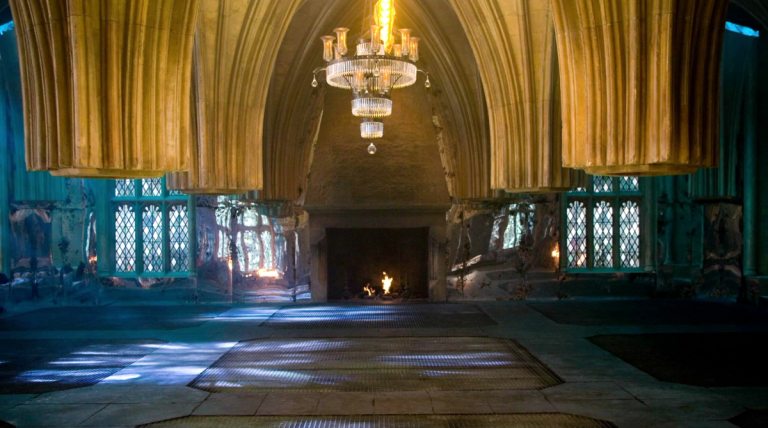
The Harry Potter Books: The Secrets Of The Room Of Requirement And Its Magic
Step into the magical world of Harry Potter and prepare to uncover the secrets of the Room of Requirement and its enchanting magic. In the beloved Harry Potter books, this…
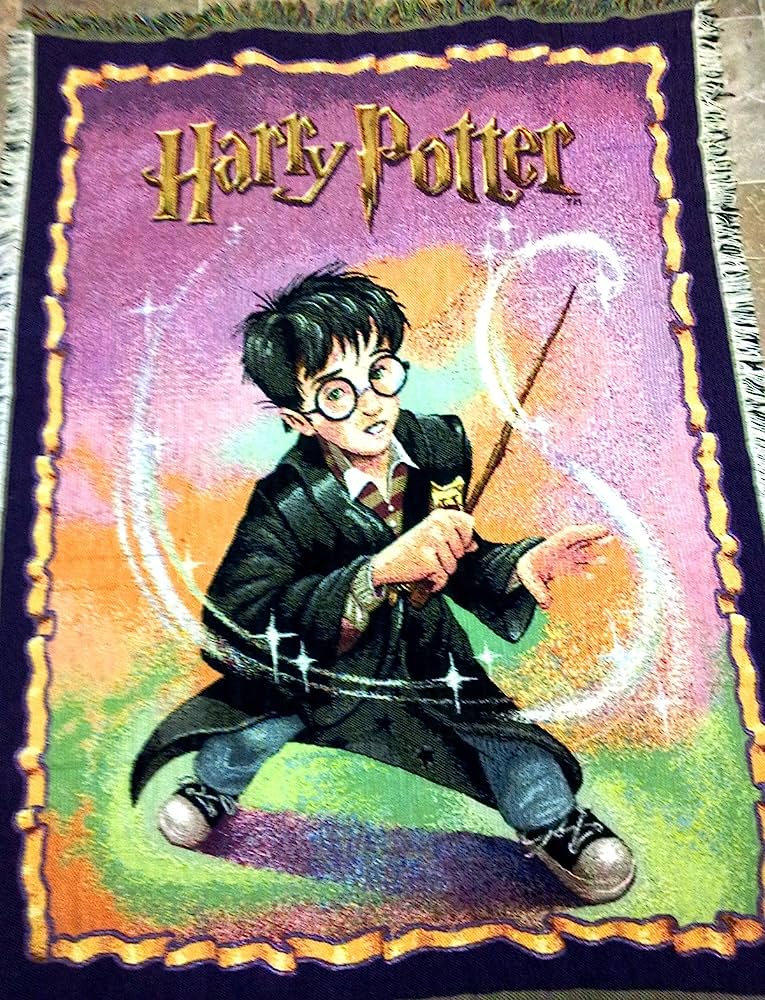
Harry Potter: A Tapestry Of Imagination And Wonder
Step into the enchanting world of Harry Potter, where imagination and wonder intertwine to create a tapestry of magic. From the moment J.K. Rowling first introduced us to the bespectacled…
Leave a Reply Cancel reply
Your email address will not be published. Required fields are marked *
Save my name, email, and website in this browser for the next time I comment.
- Entertainment
- Environment
- Information Science and Technology
- Social Issues
Home Essay Samples Literature
Essay Samples on Harry Potter
Harry Potter, a series of seven fantasy novels written by J.K. Rowling, has garnered worldwide acclaim and a devoted fan base. Set in the magical realm of Hogwarts School of Witchcraft and Wizardry, the story follows the journey of Harry Potter, an orphaned wizard who discovers his extraordinary abilities on his eleventh birthday. From that moment on, readers are whisked away on a thrilling adventure filled with friendship, loyalty, and the epic battle between good and evil.
Our Harry Potter essay collection delves into the rich tapestry of this beloved series. Explore the profound themes that underpin the narrative, such as the importance of love, the consequences of choices, and the power of resilience. Analyze the growth and development of characters like Harry, Hermione Granger, and Ron Weasley as they navigate the challenges of adolescence while simultaneously facing dark forces threatening their world. Research Harry Potter essay topics, gather your resources and let your passion for Harry Potter shine through your writing.
How to Write an Essay on Harry Potter
If you’re seeking inspiration for your own essay on Harry Potter, consider exploring various topics. Examine the symbolism of magical objects, such as the Sorting Hat or the Elder Wand, and their significance in the story. Analyze the complex relationships between characters, such as the friendship between Harry and his loyal companions or the dynamic between Harry and his arch-nemesis, Lord Voldemort.
To write a compelling Harry Potter college essay, consider these steps:
- Start by formulating a clear thesis statement that encapsulates your main argument or analysis.
- Conduct extensive research to support your claims, drawing from the novels, interviews with J.K. Rowling, and scholarly articles.
- Structure your essay with an engaging introduction, well-developed body paragraphs that provide evidence and analysis.
- Add a cohesive conclusion that ties everything together.
Enchanting Adventures and Magical Realms: A Review of the Harry Potter Series
The Harry Potter series by J.K. Rowling has captured the hearts and imaginations of readers of all ages around the world. This seven-book saga follows the journey of a young wizard, Harry Potter, as he navigates the challenges of growing up, forging friendships, and confronting...
- Harry Potter
- Harry Potter and The Sorcerer's Stone
Childhood Reflections: Exploring Classic and Modern Children's Literature
Classical Children's Literature: Beyond Entertainment Many of the books considered classical children’s literature today, such as Peter Rabbit, Alice in Wonderland, Peter Pan or the Boy Who Would Not Grow Up, The Wind in the Willow and Winnie the Pooh, are in fact stories that...
- Winnie The Pooh
Doctor Who and Harry Potter: A Transmedia Comparison
Introduction Within the 21st century, the digitalization of the media has started to shape and affect all areas of the media industries known today. As the godfather of Transmedia, Henry Jenkins states, that through digitalization the media is going through a transition where an old...
- Movie Review
Hermione in a Series of Fantasy Novels about Harry Potter
“Fear of a name only increases fear of the thing itself”, this famous line was coming from our little Hermione when everyone was afraid of You-Know-Who, Lord Voldemort. Hermione is a young lady character that acknowledge by her intelligence in a series of fantasy novels...
- Character Analysis
The Harry Potter as One of the Most Successful Franchises
The Harry Potter series is widely categorized as children’s fiction, but it has a vast adult fan base as well. This is largely due to the expert maneuvering of the narrative through the perilous waters of distinctly adult questions pertaining to love and especially death....
Stressed out with your paper?
Consider using writing assistance:
- 100% unique papers
- 3 hrs deadline option
Harry Potter' Story and Privet Drive
Book starts with Harry back at Privet Drive. He has been writing to his friends but has not been receiving letters back. This has really isolated him. Now that he has experienced the wizarding world, he wants nothing quite to return thereto . However a...
Harry Potter Novels Written by the Author J. K. Rowling
Harry Potter is a series of fantasy novels written by the author J. K. Rowling. The main character in the books is Harry Potter, a eleven year old boy who lives in Little Whinging, a town in the English county of Surrey with his aunt,...
- J. K. Rowling
Portrayal Of The Issue Of Marginalization In Harry Potter Series By J.k. Rowling
The Harry Potter series by J.K. Rowling gives us information about the magical world of wizards, a world which is totally different from the real world. In each book, they have an adventurous journey. Everythings depends on magic in that world. Harry Potter is the...
- Harry Potter and The Prisoner of Azkaban
- Social Problems
The Implications for Gender in Harry Potter Novels
Harry potter novels series by J.K Rowling is basically presenting the magic world which is similar to our reality in terms of good and evil and other similarities such as gender. Harry Potter is the main character in the book series. He discovered that he...
- Gender Stereotypes
The Puzzling Concept of Immortality in the Societal Narrative
Human beings appear to be dependent on the concept of immortality, and their long-standing fixation with it's been an area of cultural narratives—showing up within the ancient epic Mahabharatum, the hit fantasy series Harry Potter and also the Man from Earth, among several others. Our...
- Immortality
How J.K. Rowling Created Her Famous Series, Harry Potter
J.K. Rowling. Everyone who has ever read a book in their life knows the name J.K. Rowling, or at least I hope they would. She is one of the most well known authors of our time. Why? Her seven book series that almost every book...
Life of J. K. Rowling, A Role Model of a Woman Author
J.K. Rowling, an amazing book writer and Role Model. Rowling was born July 31, 1965 in Yate, Gloucestershire, England. As a kids she had a family of 4. Her parents Peter and Anne. She also had a sister named Dianne Rowling. And now she is...
J.K. Rowling: One Strong Woman
Every woman will face a crucible, a storm that challenges them to be tougher to gain strength and to believe in who they are. A strong woman is one that faces that crucible head on and grows mentally and physically stronger because of it. One...

How Harry Potter Series Influenced Me and My Life
In my earliest memories, I can recall my parents reading me different stories such as Goodnight Moon and The Moral Compass. They encouraged me to read even before I went to school. When I finally started school, I was an advanced reader, and I have...
What I Have Been Taught From the Harry Potter Series
Harry Potter, the story of a boy who lived, is about an orphan who on his 11th birthday discovered that he has been gifted with magic. It was the British author Joanne Kathleen Rowling, popularly known as J.K who introduced us to the magic realm...
Why Harry Potter is a Good, Trustworthy Friend
When you think of an amazing friend, what traits do you think they have? During the book Harry Potter and the Chamber of Secrets by J.K. Rowling Harry Potter is shown to be a great friend because he has his friends back, he’s trustworthy, and...
Best topics on Harry Potter
1. Enchanting Adventures and Magical Realms: A Review of the Harry Potter Series
2. Childhood Reflections: Exploring Classic and Modern Children’s Literature
3. Doctor Who and Harry Potter: A Transmedia Comparison
4. Hermione in a Series of Fantasy Novels about Harry Potter
5. The Harry Potter as One of the Most Successful Franchises
6. Harry Potter’ Story and Privet Drive
7. Harry Potter Novels Written by the Author J. K. Rowling
8. Portrayal Of The Issue Of Marginalization In Harry Potter Series By J.k. Rowling
9. The Implications for Gender in Harry Potter Novels
10. The Puzzling Concept of Immortality in the Societal Narrative
11. How J.K. Rowling Created Her Famous Series, Harry Potter
12. Life of J. K. Rowling, A Role Model of a Woman Author
13. J.K. Rowling: One Strong Woman
14. How Harry Potter Series Influenced Me and My Life
15. What I Have Been Taught From the Harry Potter Series
- Hidden Intellectualism
- William Shakespeare
- Sonny's Blues
- A Raisin in The Sun
- A Christmas Carol
- Call of The Wild
- A Farewell to Arms
Need writing help?
You can always rely on us no matter what type of paper you need
*No hidden charges
100% Unique Essays
Absolutely Confidential
Money Back Guarantee
By clicking “Send Essay”, you agree to our Terms of service and Privacy statement. We will occasionally send you account related emails
You can also get a UNIQUE essay on this or any other topic
Thank you! We’ll contact you as soon as possible.
Harry Potter and the Sorcerer's Stone

95 pages • 3 hours read
A modern alternative to SparkNotes and CliffsNotes, SuperSummary offers high-quality Study Guides with detailed chapter summaries and analysis of major themes, characters, and more. For select classroom titles, we also provide Teaching Guides with discussion and quiz questions to prompt student engagement.
Chapter Summaries & Analyses
Chapters 1-4
Chapters 5-8
Chapters 9-12
Chapters 13-17
Character Analysis
Symbols & Motifs
Important Quotes
Essay Topics
Discussion Questions
Consider the four different Hogwarts houses. Does sorting simplify the complexity of a human being’s personality? Why or why not?
Discuss the role of fate and destiny in Harry’s life. Provide examples of how Harry’s free will pushes back against these larger forces at work.
Compare and contrast the characters of Harry and Voldemort . In what ways are they similar, and how are they different? Why are these differences so significant?

Don't Miss Out!
Access Study Guide Now
Related Titles
By J. K. Rowling

Harry Potter And The Chamber Of Secrets
J. K. Rowling

Harry Potter and the Cursed Child
J. K. Rowling, Jack Thorne, John Tiffany

Harry Potter and the Deathly Hallows
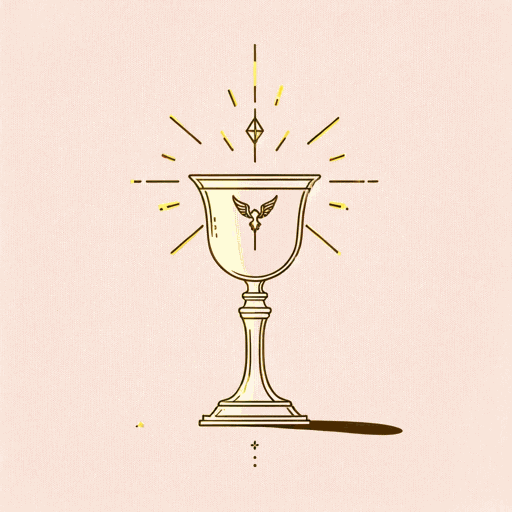
Harry Potter And The Goblet Of Fire

Harry Potter and the Half-Blood Prince
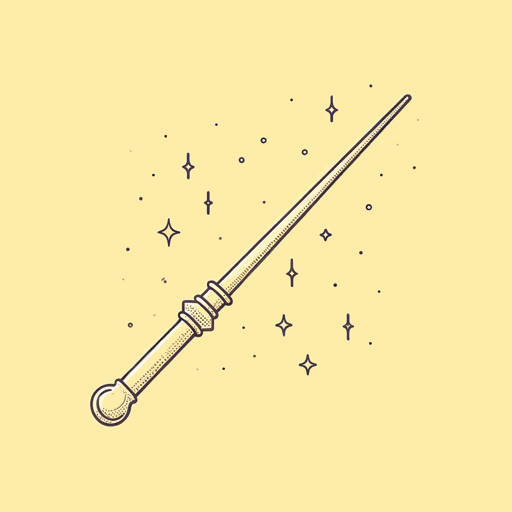
Harry Potter and the Order of the Phoenix

Harry Potter And The Prisoner Of Azkaban

The Casual Vacancy
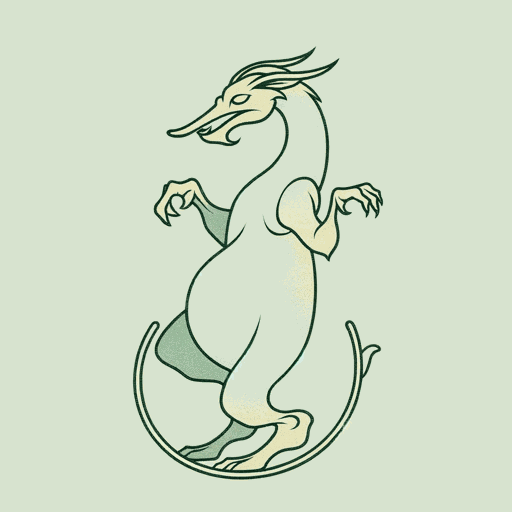
The Ickabog
Featured Collections
Action & Adventure
View Collection
Action & Adventure Reads (Middle Grade)
Books that Teach Empathy
Challenging Authority
Children's & Teen Books Made into Movies
Coping with Death
Good & Evil
Juvenile Literature
Nature Versus Nurture
The Journey
Valentine's Day Reads: The Theme of Love
Harry Potter and the Philosopher's Stone
By j.k. rowling, harry potter and the philosopher's stone essay questions.
How does the death of his parents influence Harry's character and the decisions that he makes over the course of the book?
The death of Harry's parents is the catalyst that shapes the entire course of Rowling's narrative. Without their death, Harry would not have spent his childhood with the neglectful Dursleys nor would have entered Hogwarts with little knowledge of his background or importance in the wizarding world. More importantly, the death of his parents gives Harry an impetus for his hatred of Voldemort and ensures that, despite his similarities to the Dark Lord, he will never be seduced by the power of the Dark Arts. The absence of his parents in Harry's life also distinguishes him from the other students: he has endured a loss that none of them can understand, and this sense of isolation and martyrdom will become crucial aspects of later books.
Was Professor Dumbledore correct to leave the infant Harry with the Dursley family instead of keeping him in the wizarding world?
By leaving Harry with the Dursleys, Professor Dumbledore doomed Harry to spend his childhood being neglected and mistreated by Muggles who would never understand or love him. However, Professor Dumbledore also ensured that Harry would be protected from all of the elements of the wizarding world that might ruin him. Not only was Harry safe from the threat of dark wizards determined to avenge the fallen Voldemort, but he was safe from the heavy burden and unavoidable attention given to the boy-who-lived. Because of Professor Dumbledore's decision, Harry grows to be a kind, modest, and unassuming young man who is not forced to learn of the horrific murder of his parents until he is emotionally mature.
Why is Harry's insistence on being placed in Gryffindor House instead of Slytherin House so significant in terms of his development as a character?
Throughout the novel, Rowling emphasizes the importance of choice in determining an individual's character and direction in life. It is the choices that we make that establish what kind of person we will become. With that in mind, Harry's refusal to be placed in Slytherin House, despite his many similarities with Voldemort, is crucial in terms of his characterization. Harry could have remained passive during the Sorting and would have ultimately been sorted into Slytherin. Yet, by taking an active role in his Sorting and choosing to be placed in Gryffindor, Harry demonstrates his determination to choose his own direction in life and not adhere to anyone else's perception of his nature.
Is there a clear sense of good and evil in the book?
At the beginning of the book, it seems as if there are clear distinctions between good and evil: Professor Dumbledore and Harry are wholly good, while Voldemort and his Death Eaters are wholly evil. Yet, over the course of the narrative, Rowling complicates the issue and creates a sort of moral ambiguity, particularly in the character of Professor Snape. From the start, Professor Snape is presented to be a malignant follower of Lord Voldemort, and Harry is only too ready to believe that his Potions teacher is completely evil. In actuality, though, it is the seemingly benevolent Professor Quirrell who is doing the bidding of Lord Voldemort. The concepts of good and evil are too complex to be expressed in black-and-white terms, and every character has some element of good and evil in their nature. The problem is, Rowling suggests, how a battle can be fought between good and evil when the lines between the two are so blurry.
What primary difference between Harry and Voldemort does Rowling choose to highlight in the book? Why is this difference so important?
The primary difference between Harry and Voldemort is Harry's capacity to understand and feel love. Although Harry does not have his parents, he is still able to love their memory and develop close relationships with other characters, including Ron, Hermione, and Professor Dumbledore. Voldemort, on the other hand, views love as a weakness and so chooses to isolate himself from those around him. Professor Quirrell does not love Voldemort but rather fears him, so his loyalty is far weaker than the bonds of friendship forged between Harry, Ron, and Hermione. Moreover, because Lord Voldemort did not comprehend the power of Lily Potter's love when he attempted to kill her son, Voldemort nearly destroyed himself with the killing curse meant for Harry. Voldemort will never be able to understand the strength of love and, though he will always be more powerful than Harry, Harry has the support and strength of the people he loves to help him defeat the Dark Lord.
How does Rowling present the difference between the wizarding world and the Muggle world? Why does she choose to highlight these differences?
The Dursley family serves as the primary example of the Muggle world in the first part of the novel: ignorant, selfish, close-minded, and not equipped to understand the wonders of the wizarding world. One of the reasons why Harry is left with the Dursley family is precisely because of their "Muggleness," which allows him to grow up without the burden of the wizarding world. However, when Harry goes to Hogwarts and meets Hermione and other Muggle-born wizards, he learns that the Dursleys are not representative of the Muggle world, but rather the worst part of it. Moreover, Rowling reveals that people in the wizarding world can be just as cruel and close-minded as Muggles. Although the two worlds seem to be completely different, good and evil are present in both, and both worlds are worth saving from Lord Voldemort's reign of terror.
Throughout the novel, Harry and his friends break numerous rules at Hogwarts. How does Rowling create a balance between the importance of maintaining authority and the importance of rebelling against it?
Rowling does not argue in favor of ignoring all rules and regulations. Many of the rules at Hogwarts are instituted in order to protect the students; for example, the rule that prohibits students from going to the forbidden third-floor corridor ensures that students are not attacked by the three-headed dog. At the same time, however, Rowling realizes that rules must be broken in certain situations for the sake of the bigger picture. Harry does not break the rules at Hogwarts simply for the sake of breaking them; he rebells because he knows that his actions serve a greater purpose: protecting the Sorcerer's Stone, defeating Voldemort, and ultimately, protecting a way of life. No one can make a difference, good or bad, if they always adhere to the rules, and part of Harry's appeal is that he is willing to risk the consequences in order to do what he believes is right.
What larger theme does Rowling express in her discussion of the Mirror of Erised and Harry's fascination with it?
In her discussion of the Mirror of Erised, Rowling explores the issue of desire and the way that it can hinder a person from taking action in his or her life. When Harry looks into the Mirror of Erised, he sees the family that he will never know. As Professor Dumbledore tells him, the vision of Harry's parents is not truth or knowledge: Lily and James Potter are dead and never coming back. Yet, Harry's desire for his family is so strong that he could easily lose himself in the visions of the mirror and waste away, never to move forward. Desire can be an important catalyst for action (as in Ron's case, in which he sees himself as Head Boy and Quidditch captain), but with Harry, his desire forces him always to look backwards. In order for Harry to live his own life and fulfill his other desires, he cannot lose himself in the desire for something that he can never have.
What is the significance of Dumbledore's relationship with Harry?
Professor Dumbledore is the first real father figure that Harry has in his life at this point. Lacking the presence of his true parents, Harry had to raise himself more or less on his own, rather than follow the example of the warped parental figures: Vernon and Petunia Dursley. Although Professor Dumbledore does not seem to take an active role in Harry's life until half-way through the novel, he is always watching over Harry and seems to care for him a great deal. It is not coincidental that Dumbledore is the one who takes Harry after his parents' death and determines where he should be raised. Harry's conversations with Dumbledore shape his belief system, as well as providing him with a stable figure of authority that he can model himself upon.
Many conservative critics claim that the Harry Potter series promotes witchcraft and is therefore unsuitable for children. Do you agree or disagree with this claim?
In the Harry Potter series, Rowling creates a magical world in which the forces of good are pitted against the forces of evil. Yet, the themes that Rowling promotes in her books--the importance of choice, friendship, love, determination--are themes that are important in the everyday world and that any young children should strive to learn. Rowling's decision to express these themes through a magical and exciting fantasy world is not a promotion of witchcraft, but rather a way to connect and speak to children in a manner that excited their imagination, creativity, and desire to read. A close examination of the Harry Potter books also reveals that Rowling is very clear about which kinds of magic belong to the Dark Arts and are thus associated with cruelty, tyranny, fear, and other negative elements of the everyday world. When conservative critics denounce Rowling for promoting witchcraft in her novels, it seems likely that, not only have they not read any of the Harry Potter books, but they have missed the important lessons that Rowling instills in her work.

Harry Potter and the Philosopher’s Stone Questions and Answers
The Question and Answer section for Harry Potter and the Philosopher’s Stone is a great resource to ask questions, find answers, and discuss the novel.
Who is the only person Voldemort is afraid of?
Albus Dumbledore, the headmaster of Hogwarts, is Voldemort's only feared enemy.
What does Hagrid bring for Harry when he first time meet?
When Hagrid first meets Harry Potter he brings him a cake and a letter inviting him to attend Hogwarts school of Witchcraft and Wizardry.The cake is a special treat for Harry's eleventh birthday,and the letter explains that Harry is a Wizard and...
Harry Potter Short Questions
I'm sorry, you have not posted your question. Please list your questions separately.
Study Guide for Harry Potter and the Philosopher’s Stone
Harry Potter and the Sorcerer's Stone (also Harry Potter and the Philosopher's Stone) study guide contains a biography of J.K. Rowling, quiz questions, major themes, characters, and a full summary and analysis.
- About Harry Potter and the Philosopher's Stone
- Harry Potter and the Philosopher's Stone Summary
- Character List
Essays for Harry Potter and the Philosopher’s Stone
Harry Potter and the Philosopher's Stone (also Harry Potter and the Sorcerer's Stone) literature essays are academic essays for citation. These papers were written primarily by students and provide critical analysis of Harry Potter and the Philosopher's Stone.
- Progressive Heroines: Jane Eyre to Hermione Granger
- Cinderella and Harry Potter: The Role Models for Youth
- Magic and the Supernatural
- Harry Potter and The Last Unicorn: Can the Supporting Characters be the Hero?
- The Terrifying Traits Keeping Harry Potter from Being a Positive Influence in a Children's Curriculum
Wikipedia Entries for Harry Potter and the Philosopher’s Stone
- Introduction
- Development, publication and reception
- Style and themes
- Search Menu
- Browse content in Arts and Humanities
- Browse content in Art
- History of Art
- Browse content in History
- Colonialism and Imperialism
- Environmental History
- History by Period
- History of Agriculture
- History of Gender and Sexuality
- Industrial History
- Intellectual History
- Legal and Constitutional History
- Military History
- National Liberation and Post-Colonialism
- Oral History
- Political History
- Regional and National History
- Slavery and Abolition of Slavery
- Social and Cultural History
- Theory, Methods, and Historiography
- Browse content in Literature
- Children's Literature Studies
- Literary Studies (European)
- Literary Studies (American)
- Literary Studies - World
- Literary Studies (19th Century)
- Literary Studies (20th Century onwards)
- Literary Studies (African American Literature)
- Literary Studies (British and Irish)
- Literary Studies (Fiction, Novelists, and Prose Writers)
- Literary Studies (Gender Studies)
- Literary Studies (Graphic Novels)
- Literary Studies (Plays and Playwrights)
- Literary Studies (Poetry and Poets)
- Literary Studies (Postcolonial Literature)
- Literary Studies (Women's Writing)
- Literary Theory and Cultural Studies
- Mythology and Folklore
- Browse content in Media Studies
- Browse content in Music
- Applied Music
- Ethnomusicology
- Music Cultures
- Music and Media
- Music Education and Pedagogy
- Music Theory and Analysis
- Musical Structures, Styles, and Techniques
- Musicology and Music History
- Race and Ethnicity in Music
- Browse content in Religion
- History of Religion
- Browse content in Society and Culture
- Cookery, Food, and Drink
- Cultural Studies
- Customs and Traditions
- Sports and Outdoor Recreation
- Browse content in Social Sciences
- Browse content in Politics
- Political Sociology
- Browse content in Regional and Area Studies
- Latin American Studies
- Native American Studies
- Browse content in Sociology
- Childhood Studies
- Gender and Sexuality
- Health, Illness, and Medicine
- Occupations, Professions, and Work
- Race and Ethnicity
- Social Theory
- Social Movements and Social Change
- Sociology of Religion
- Sport and Leisure
- Urban and Rural Studies
- Reviews and Awards
- Journals on Oxford Academic
- Books on Oxford Academic

- < Previous
Introduction
- Published: May 2022
- Cite Icon Cite
- Permissions Icon Permissions
This book took shape as readers in the United States marked twenty years since J. K. Rowling published her first Harry Potter novel here. In those twenty years, a generation of readers came of age with Harry, Ron, and Hermione as they tracked the publication of the series across their teenage years. Midnight book release parties, all day reading binges, cosplay with robes and wands, and long hours of constructing fan theories and fictional fill-ins are among the memories that Millennials take with them into adulthood. And it’s not just Millennials who are having a nostalgic Harry Potter moment. There has never been a more successful book series (500 million copies sold and counting), nor a more culturally prominent literary phenomenon, with three expanding theme parks, ten movies and more in production, multiple followup e-books and short stories, new editions of the original novels (illustrated, translated, available in your House colors), a variety of podcasts, an Internet home in Pottermore , several Hogwarts-themed charitable organizations, and Rowling’s joint envisioning of a grown-up Harry in The Cursed Child , a successful play on the London stage that opened on Broadway and claimed five Tony awards. Still today the series holds a venerable place on the New York Times Bestseller List—for more than 625 weeks as of this writing—and “Muggle” is officially in the Oxford dictionary. 1 All of this represents an expansive world of Potter-philia.
Signed in as
Institutional accounts.
- Google Scholar Indexing
- GoogleCrawler [DO NOT DELETE]
Personal account
- Sign in with email/username & password
- Get email alerts
- Save searches
- Purchase content
- Activate your purchase/trial code
Institutional access
- Sign in with a library card Sign in with username/password Recommend to your librarian
- Institutional account management
- Get help with access
Access to content on Oxford Academic is often provided through institutional subscriptions and purchases. If you are a member of an institution with an active account, you may be able to access content in one of the following ways:
IP based access
Typically, access is provided across an institutional network to a range of IP addresses. This authentication occurs automatically, and it is not possible to sign out of an IP authenticated account.
Sign in through your institution
Choose this option to get remote access when outside your institution. Shibboleth/Open Athens technology is used to provide single sign-on between your institution’s website and Oxford Academic.
- Click Sign in through your institution.
- Select your institution from the list provided, which will take you to your institution's website to sign in.
- When on the institution site, please use the credentials provided by your institution. Do not use an Oxford Academic personal account.
- Following successful sign in, you will be returned to Oxford Academic.
If your institution is not listed or you cannot sign in to your institution’s website, please contact your librarian or administrator.
Sign in with a library card
Enter your library card number to sign in. If you cannot sign in, please contact your librarian.
Society Members
Society member access to a journal is achieved in one of the following ways:
Sign in through society site
Many societies offer single sign-on between the society website and Oxford Academic. If you see ‘Sign in through society site’ in the sign in pane within a journal:
- Click Sign in through society site.
- When on the society site, please use the credentials provided by that society. Do not use an Oxford Academic personal account.
If you do not have a society account or have forgotten your username or password, please contact your society.
Sign in using a personal account
Some societies use Oxford Academic personal accounts to provide access to their members. See below.
A personal account can be used to get email alerts, save searches, purchase content, and activate subscriptions.
Some societies use Oxford Academic personal accounts to provide access to their members.
Viewing your signed in accounts
Click the account icon in the top right to:
- View your signed in personal account and access account management features.
- View the institutional accounts that are providing access.
Signed in but can't access content
Oxford Academic is home to a wide variety of products. The institutional subscription may not cover the content that you are trying to access. If you believe you should have access to that content, please contact your librarian.
For librarians and administrators, your personal account also provides access to institutional account management. Here you will find options to view and activate subscriptions, manage institutional settings and access options, access usage statistics, and more.
Our books are available by subscription or purchase to libraries and institutions.
- About Oxford Academic
- Publish journals with us
- University press partners
- What we publish
- New features
- Open access
- Rights and permissions
- Accessibility
- Advertising
- Media enquiries
- Oxford University Press
- Oxford Languages
- University of Oxford
Oxford University Press is a department of the University of Oxford. It furthers the University's objective of excellence in research, scholarship, and education by publishing worldwide
- Copyright © 2024 Oxford University Press
- Cookie settings
- Cookie policy
- Privacy policy
- Legal notice
This Feature Is Available To Subscribers Only
Sign In or Create an Account
This PDF is available to Subscribers Only
For full access to this pdf, sign in to an existing account, or purchase an annual subscription.
The “Harry Potter” Movie vs. Book Comparison Essay
Nowadays, more and more films are being made based on the books’ plots. The trend to make movies according to popular books has developed tremendously with the launch of such film projects as The Lord of the Rings and Harry Potter. It is known that if the viewer first watches a movie and then reads the book it is based on, it will be very difficult to eliminate the images that the director, according to his vision, reflected in the film. One’s imagination ceases to work, and reading is reduced to the reproduction in the mind of already assimilated images. At the same time, one of the most important tasks of literature is to develop the imagination. The reader must do the work of visually recreating the images the author describes. For my essay, I chose the movie and the book Harry Potter, which differ in many aspects, such as the plot, the details of the narrative, and the representation of the main characters.
The movie Harry Potter is a great illustration of the book. All the actors are perfectly chosen, and the main characters have the same characteristics as the author of the book wrote about. The plot twists and turns are mostly consistent with the source material. The boy’s story, life journey, and experiences are described in the original version. He also goes to a wizarding school and finds friends and enemies. Harry develops his abilities, gets into difficult situations, and gets out of them with agility. Furthermore, the author and director of the book describe him as a brave, kind, and courageous boy.
Although the idea and the main points are the same, there was much controversy. Readers and viewers had a completely different understanding of the story because “Harry Potter” is full of screaming inconsistencies. The first difference in the plot is that the movie omits the entire first chapter of the book when wizards around the world meet and raise their glasses to the surviving boy. Instead, the movie shows Professor Albus Dumbledore and Professor Minerva McGonagall meeting, and then the events of Harry’s hapless relatives begin to unfold.
The next difference concerning this aspect is that the movie omitted important details about the creation of the Marauder’s Map. However, the book does say that Tail (Peter Pettigrew), working for the Dark Lord, was the Keeper of the Potter Mystery (Kostelej and Bagić 19). After all, he was one of those who had a hand in creating the magical thing. It was through him that Voldemort found James and Lily that ill-fated night and Sirius had nothing to do with it. Another difference is that the professor effortlessly shakes his hand when Harry meets Professor Quirrell in Diagon Alley in the first book (Kostelej and Bagić 19). However, he politely refuses to make contact with Harry in the movie. This is troubling, for he could only burn his palms if Voldemort had already taken possession of his flesh (Kostelej and Bagić 28). Furthermore, that happened after the Philosopher’s Stone was discovered.
The next aspect of comparison are the details of the narrative. Harry’s farewell to Dudley looks dramatic in the book, and the reader even begins to feel compassion for the boy raised by such stingy and arrogant parents. On the other hand, the film deprived the audience of this emotion, thus distorting the relationship between the boys. The next difference is that the books explore the story of Tom Riddle becoming the ruthless Voldemort in much greater depth. According to the movie version, the dark lord is just an orphan with a penchant for evil.
Nevertheless, the novels show that his fate is incredibly complicated and creepy. In Harry Potter and the Half-Blood Prince, Albus Dumbledore showed Harry a memory of the Mrax family. In the flashback, Potter saw the home of Marvolo Mrax, Voldemort’s grandfather (Kostelej and Bagić 25). The Mraxes lived poor, having used up their wealth over several generations. However, the most important detail readers learned was that Tom Riddle’s father was under the influence of a love potion, so the future dark lord lost his capacity for love at birth. Marvolo Mrax’s hut later became where Voldemort hid one of his Horcruxes, which Dumbledore found a few years later (Kostelej and Bagić 20). These details change the villain’s perception, which is impossible to achieve based on the movie.
The third aspect of comparison is the representation of the characters. Several times in the film, the audience hears phrases indicating incredible heredity; it is claimed that Harry has his mother’s eyes. Rowling rewarded Lily with a green shade of eyes if we believed the manuscripts. However, the screen shows Harry as a blue-eyed boy, which may mislead people who have read the book. Another difference is that some of Dobby’s merits were attributed to Neville in the movie. For example, the house elf was the one who got the gill for Harry during the Tournament of Three Wizards. However, the film’s writer let his classmate do it, and the same thing happened with the Room of Requirement.
Thus, the book “Harry Potter” and its film adaptation have many differences, but there are also similarities. This can be frustrating and misleading for people who read the story in the book version first and then watch the movie. However, given that the book’s author and the film’s director are two different people, it can be understood that it is impossible to achieve a complete identity. People have different views and can implement ideas differently, which is a significant factor when comparing these narrative versions.
Kostelej, Martin, and Marina Bagić Babac. “Text Analysis Of The Harry Potter Book Series.” South Eastern European Journal of Communication 4.1 (2022): 17-30.
- Chicago (A-D)
- Chicago (N-B)
IvyPanda. (2024, February 24). The "Harry Potter" Movie vs. Book Comparison. https://ivypanda.com/essays/the-harry-potter-movie-vs-book-comparison/
"The "Harry Potter" Movie vs. Book Comparison." IvyPanda , 24 Feb. 2024, ivypanda.com/essays/the-harry-potter-movie-vs-book-comparison/.
IvyPanda . (2024) 'The "Harry Potter" Movie vs. Book Comparison'. 24 February.
IvyPanda . 2024. "The "Harry Potter" Movie vs. Book Comparison." February 24, 2024. https://ivypanda.com/essays/the-harry-potter-movie-vs-book-comparison/.
1. IvyPanda . "The "Harry Potter" Movie vs. Book Comparison." February 24, 2024. https://ivypanda.com/essays/the-harry-potter-movie-vs-book-comparison/.
Bibliography
IvyPanda . "The "Harry Potter" Movie vs. Book Comparison." February 24, 2024. https://ivypanda.com/essays/the-harry-potter-movie-vs-book-comparison/.
- The Dumbledore Army: Social Media Power
- The "Harry Potter" Novels by Joanne Rowling
- Literary Values of Harry Potter Novels by Rowling
- Harry Potter Stories and Impact on Pop Culture
- Heroes at Hogwarts: The Journey of the Hero in the Harry Potter Series
- "Harry Potter" Movie and Novel: Plot Changes
- The Harry Potter Phenomenon Analysis
- Harry Potter Books and Movies
- Rowling's “Harry Potter” Books in Connection to Mythology
- Harry Potter and the Deathly Hallows – Part 2
- Reality Television Phenomenon in American Culture
- Popular Culture and Williams' Life of the Mind
- A Comparison of Ariana Grande and Ed Sheeran
- Autistic Spectrum Disorder: The Case of Sheldon Cooper
- Export of Popular Culture Products in Asia
(Stanford users can avoid this Captcha by logging in.)
- Send to text email RefWorks EndNote printer
Transmedia Harry Potter : essays on storytelling across platforms
Available online, at the library.

SAL3 (off-campus storage)
More options.
- Find it at other libraries via WorldCat
- Contributors
Description
Creators/contributors, contents/summary.
- Representations of journalism in the Potterverse / Gabriela Gruszynski Sanseverino And Ana Gruszynski
- Supplement or supplant? How fan editors contribute to fictional universes / Brian Bernard And Kimberly D. Martinez
- Harry Potter and the development of narrative and media literacies / Alison Halsall
- Harry Potter and the transmediality of artistic expression / Caitlyn Boyle
- Harry Potter fandom and narratives of inequality in the United States presidential election of 2016 / Sergey Medvedev And Elena Pronkina
- The magic of translation : an analysis of the Brazilian Portuguese version of Harry Potter and the philosopher's stone / Bárbara Cardoso De Souza
- Transmediated Weasleys : a tale of two Ginnys / Christopher E. Bell And Celina Smith
- Performing memories through fandom talk : what a focus group interview reveals about growing up with Harry Potter / Bronwyn E. Beatty
- Magical and mundane narrative devices / Jørgen Riber Christensen And Thessa Jensen
- The magic of Harry Potter for children in care / Sarah Jayne Mokrzycki
- House-elves in Harlem : stereotyping the other in Fantastic beasts and where to find them / Kris Swank
- Harry Potter, the boy with many faces : the illustrated Harry Potter books in transmedia motion / Sarah Mygind.
Bibliographic information
Acquired with support from.

The Eli H. Wiel Book Fund
Browse related items
- Stanford Home
- Maps & Directions
- Search Stanford
- Emergency Info
- Terms of Use
- Non-Discrimination
- Accessibility
© Stanford University , Stanford , California 94305 .
Home — Essay Samples — Entertainment — Twilight — Twilight/Harry Potter Narrative Collective-Assimilation Scale
Twilight/harry Potter Narrative Collective-assimilation Scale
- Categories: Harry Potter and The Sorcerer'S Stone Twilight
About this sample

Words: 1130 |
Published: Jul 7, 2022
Words: 1130 | Pages: 2 | 6 min read

Cite this Essay
Let us write you an essay from scratch
- 450+ experts on 30 subjects ready to help
- Custom essay delivered in as few as 3 hours
Get high-quality help

Prof. Kifaru
Verified writer
- Expert in: Literature Entertainment

+ 120 experts online
By clicking “Check Writers’ Offers”, you agree to our terms of service and privacy policy . We’ll occasionally send you promo and account related email
No need to pay just yet!
Related Essays
6.5 pages / 2866 words
4.5 pages / 2006 words
4 pages / 1710 words
5 pages / 2217 words
Remember! This is just a sample.
You can get your custom paper by one of our expert writers.
121 writers online
Still can’t find what you need?
Browse our vast selection of original essay samples, each expertly formatted and styled
Related Essays on Twilight
When contrasting the book Twilight, composed by Stephanie Meyers, with the motion picture Twilight, screenplay composed by Melissa Rosenberg and created by Catherine Hardwicke, there are different visual contrasts between the [...]
I recently read Twilight written by Stephenie Meyer. There are five books total for this saga. I happened upon this gem of a novel while looking around the class library for a book to read, I was initially attracted to the book [...]
Movies and books are both great sources of entertainment. They are two very different ways to present ideas. Books use descriptive text to bring words to life and create vivid imagery. On the other hand, movies supply the [...]
When Twilight was initially published in 2005, it received the attention of young adult readers of predominantly female due to the plot of the novel; charting the life of Isabella “Bella” Swan, a teenager who relocated to [...]
When one thinks of progressive movies, there are plenty that come to mind. Many are similar, with main characters challenging societal, religious, or social expectations and sticking it to the man. Normally, teen romance movies [...]
Anthony Burgess’s A Clockwork Orange is a novel pervaded by a multifaceted and intrinsic musical presence. Protagonist Alex’s fondness for classical music imbues his character with interesting dimensions, and resonates well [...]
Related Topics
By clicking “Send”, you agree to our Terms of service and Privacy statement . We will occasionally send you account related emails.
Where do you want us to send this sample?
By clicking “Continue”, you agree to our terms of service and privacy policy.
Be careful. This essay is not unique
This essay was donated by a student and is likely to have been used and submitted before
Download this Sample
Free samples may contain mistakes and not unique parts
Sorry, we could not paraphrase this essay. Our professional writers can rewrite it and get you a unique paper.
Please check your inbox.
We can write you a custom essay that will follow your exact instructions and meet the deadlines. Let's fix your grades together!
Get Your Personalized Essay in 3 Hours or Less!
We use cookies to personalyze your web-site experience. By continuing we’ll assume you board with our cookie policy .
- Instructions Followed To The Letter
- Deadlines Met At Every Stage
- Unique And Plagiarism Free

IMAGES
VIDEO
COMMENTS
Mini Essays. Throughout most of the story, we share Harry's point of view. We see what he sees and experience what he experiences. In the first chapter, however, we are shown Mr. Dursley's point of view as he drives to work, sees a cat reading a map, and encounters oddly dressed people on the streets.
Harry Potter Narrative. My story begins around September of my 4th grade year when my teacher informed the class we were going to start AR reading, and we needed to make a trip to the library to pick out our books. I put it off as long as I could, but eventually I made that dreaded trip to the library.
The hero's journey is a narrative pattern identified by scholar Joseph Campbell in which a hero embarks on an adventure, faces challenges and trials, and ultimately undergoes a transformation. This essay will explore the hero's journey in the Harry Potter series, examining how the protagonist, Harry Potter, embodies the archetypal hero and ...
The Hero's Journey, a concept popularized by Joseph Campbell, is a common narrative structure found in many epic tales throughout history. It follows the path of a hero as they embark on a transformative quest, facing challenges, discovering their true potential, and ultimately emerging victorious. In the Harry Potter books, this narrative ...
Here are some recommended essay topics for Harry Potter and The Sorcerer's Stone, divided into categories to help you find the perfect topic for your assignment: Character Analysis; Analyzing the character development of Harry Potter throughout the novel. Exploring the role of Hermione Granger as a strong female character in the story.
Suggested Essay Topics. 1. At the end of Harry's adventures, when the Sorcerer's Stone has been safely destroyed, Dumbledore reveals to Harry that he devised the Mirror of Erised in the knowledge that Harry would succeed where Voldemort would fail. This admission raises the question of whether Dumbledore orchestrates other parts of Harry ...
Mr. Dursley, a well-off Englishman, notices strange happenings on his way to work one day. That night, Albus Dumbledore, the head of a wizardry academy called Hogwarts, meets Professor McGonagall, who also teaches at Hogwarts, and a giant named Hagrid outside the Dursley home. Dumbledore tells McGonagall that someone named Voldemort has killed ...
The contributors to The Harry Potter Generation: Essays on Growing Up with the Series trace manifold influences which are still expanding, having permeated a remarkable number of the now-adult Harry Potter generation's life experiences, including 'education, romance, friendship, family, and narrative' (2). It is also suggested that ...
Our Harry Potter essay collection delves into the rich tapestry of this beloved series. Explore the profound themes that underpin the narrative, such as the importance of love, the consequences of choices, and the power of resilience. Analyze the growth and development of characters like Harry, Hermione Granger, and Ron Weasley as they navigate ...
Thanks for exploring this SuperSummary Study Guide of "Harry Potter and the Sorcerer's Stone" by J. K. Rowling. A modern alternative to SparkNotes and CliffsNotes, SuperSummary offers high-quality Study Guides with detailed chapter summaries and analysis of major themes, characters, and more. For select classroom titles, we also provide Teaching Guides with discussion and quiz questions to ...
The death of Harry's parents is the catalyst that shapes the entire course of Rowling's narrative. Without their death, Harry would not have spent his childhood with the neglectful Dursleys nor would have entered Hogwarts with little knowledge of his background or importance in the wizarding world. ... Essays for Harry Potter and the ...
When choosing a topic for your Harry Potter essay, consider what aspect of the series you are most passionate about. Whether it's the themes of friendship and bravery, the complex characters, or the world-building, there are plenty of topics to explore. ... created a study in which they tested the hypothesis that reading a piece of a narrative ...
Personal Narrative Writing: The Wizarding World Of Harry Potter. I am fascinated by magic. Magic - magical things and moments that could take me away from the static and mundane rhythms in daily life. The list could go on from small flowers that grow on a pavement, my dogs' happy and supposedly smiling faces, stories in books, movies and ...
Narrative Voice and Metafiction in the Harry Potter Series Auba Llompart Pons Universitat de Vic - Universitat Central de Catalunya [email protected] This article sets out to examine narrative voice in J. K. Rowling's Harry Potter series (1997-2007) as well as the presence of metatextual and metafictional elements in her novels.
Personal Narrative: The Harry Potter Series. I staggered backwards, head throbbing, unable to gain balance. The cold night air surrounded me, numbing my fingers as they pressed against my burning forehead. My blurry eyes could barely make out the shapes before me, but I could see a figure standing merely feet away, drinking the blood of a ...
Sirius and Harry feel a kinship not only because Harry's father, James Potter, appointed Sirius as Harry's godfather, but also because they are often subject to same kinds of frustrating restrictions. Every summer, Harry must stay with his wretched Aunt Petunia, Uncle Vernon, and cousin Dudley. Even though they are technically his family ...
Yet, despite such phenomenal success, literary critical assessment of Rowling's novels has lagged behind the parade. While popular books, articles, and blogs for general readers proliferate, while philosophers, historians, theologians, sociologists, psychologists, even business professors have taken on book-length studies and edited essay collections about Harry Potter, literature scholars ...
For my essay, I chose the movie and the book Harry Potter, which differ in many aspects, such as the plot, the details of the narrative, and the representation of the main characters. The movie Harry Potter is a great illustration of the book. All the actors are perfectly chosen, and the main characters have the same characteristics as the ...
Contributions by Lauren R. Carmacci, Keridiana Chez, Kate Glassman,John Granger, Marie Schilling Grogan, Beatrice Groves, TolondaHenderson, Nusaiba Imady, Cecil...
Personal Narrative Essay. On 06/01/2018 at approximately 1654 hrs. , I responded to the 100 blk of S Main St in reference to a drunk male without a shirt on harassing people walking while being aggressive. The caller advised the male also cornered two young women of the street and was harassing people in their vehicles.
Critical Essay on Harry Potter. This essay sample was donated by a student to help the academic community. Papers provided by EduBirdie writers usually outdo students' samples. Myth is an important stage in the human experience. Without you, the world would be a terrible place. Thought is essential to human wisdom and happiness.
Nowhere are these more evident than within the Harry Potter universe, where a coherent world and narrative are iterated across, books, films, video games, fan fiction, art, music and more. Curated by a leading Harry Potter scholar, this collection of new essays explores the range of Potter texts across a variety of media. (source: Nielsen Book ...
In a 2011 experimental research study conducted by Shira Gabriel and Ariana F. Young 140 college students were used to test the narrative collective-assimilation hypothesis.